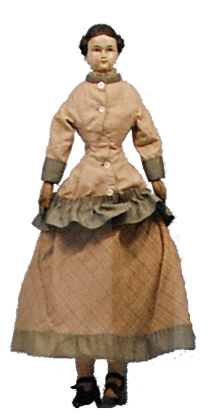It will be placed in a Mylar sleeve, mounted between sheets of antireflective plexiglass, placed in a crate and transported from Austin to San Antonio by a fine arts shipper with an escort of state troopers. It will be displayed in a custom-built case that will filter most ultraviolet light. Officers known as Alamo Rangers, private security guards and plainclothes off-duty police officers, will patrol or stand guard. The project will cost more than $100,000, the majority of which will be private donations.
NY Times, October 3, 2012
The document in question is a letter from William Travis sent from The Alamo in the days just before Santa Ana arrived with the Mexican army. It is a relic and this hysterical worship of it is ridiculous. Travis writes "Victory or death!" Rick Perry repeated the phrase, with a straight face, when he ran for president last year.
The purpose of the security precautions, with the "Alamo Rangers",
off-duty police, and private security guards is to try to convince you
and I that there really is something very, very important about this
letter. There really is. It is so sacred, so holy, and so
monumental, that nefarious persons all around the world would take it if
they could. It must be guarded by very straight-faced armed men.
It must be transported in a special vehicle with an escort of state
troopers. The board that overseas the archives commission was not
impressed with these precautians and warns that it might not approve the
transfer of the document to San Antonio to be displayed, in February, at
the Alamo.
Lt. Col. William Barret Travis was an idiot.
Travis sacraficed something of infinite value-- his own life-- for a brief and bloody flip through a fringe way-station on the path to manifest destiny. The fight was not about freedom: it was about taking land from Mexico on behalf of American speculators and slave-traders. These people were not fighting for freedom of religion or expression or the right to vote or join a union or put up a Christmas tree. They were fighting to perpetuate a land distribution system that allowed a select few to accumulate very, very large swatches of land through trickery and deceit so they could resell it to "pioneers" at inflated prices. The pioneers could then use slave labor (illegal in Mexico) to farm their lands.
They always cry "freedom, freedom" and they always take your gold, your oil, your wheat, your children, your drugs, your land. They cry "freedom, freedom" while protecting your pimps and casinos. They sing glorious praises of freedom, freedom, as they sell you out to Exxon or IBM or Shell.
General Sam Houston didn't think much of the Alamo in terms of strategic importance. This was a perfectly rational, sound decision. He wasn't surrendering to Santa Anna: he was conducting a strategic retreat so he could regroup his army and fight again another day, on better terms, and with less needless sacrafice of lives. Houston was an oddity for military commanders in his day: careful, prudent, cautious. He eventually prevailed, at San Jacinto, but he took some heat in the meantime.
Needless? Texas, you may not know, was a part of Mexico in 1821 (it was originally part of the Spanish colonies). The United States negotiated a border with Mexico which confirmed Texas as Mexican territory. However, American settlers ignored the agreement and violated the treaty by moving into the territory. Santa Ana, in the meantime, had rescinded the Mexican constitution and made himself dictator.
Eventually, the American settlers organized, formed an army, and declared independence. One of the reasons? Mexico had outlawed slavery. The Battle of the Alamo took place February 23 - March 6, 1836. The decisive battle was fought shortly afterwards in San Jacinto. Santa Ana capitulated and signed a new treaty. He had been captured dressed as a common soldier, but was given away by his own men when they acknowledge him as "presidente", apparently.
In 1845, Texas was granted statehood.
The monument in San Jacinto says this: "Measured by its results, San Jacinto was one of the decisive battles of the world..." It would have been fun to sit on the meeting that chose that phrase. I would have liked to hear their ranking of "decisive battles of the world".
Houston, as I said, didn't think it was smart to defend the Alamo against a vastly superior force. He sent James Bowie to the fort to remove the artillery and destroy the entire complex. It was Colonel James Neill who decided that the men under his command should honor his own ego with the sacrafice of their lives. Then he left.
Bowie, Travis, and Davy Crockett stayed. Travis and Bowie argued over who was in charge. Neill returned to settle the dispute and then left again. This was a wise decision.
When the Mexican army arrived, Bowie tried to negotiate a surrender. Yes, he did. Travis, mad for self-abasement and morbid glory, disagreed with Bowie and fired a cannon at the Mexican camp, and sent his own hard-liner to meet with the Mexicans.
The Mexicans, in any case, were not in the mood for taking prisoners. Apparently there is a kind of flag you raise if you intend to murder prisoners. They raised this flag.
Most of what you have heard about the Alamo since is blather. The Americans seem to think that out-killing the Mexicans from within a fortified compound was the most incredible awesomest achievement of any army anywhere in the entire history of the entire world. The movies and the bombast are intended to encourage today's young people to sign up for more bloodletting when required, as when our oil supplies are in question. Glory, glory, hallelujah.

